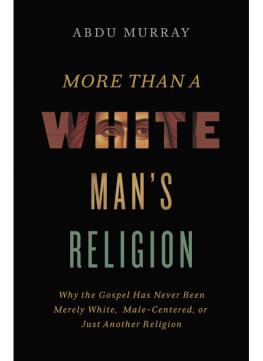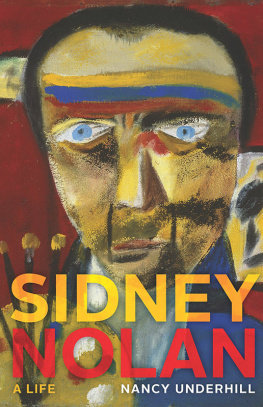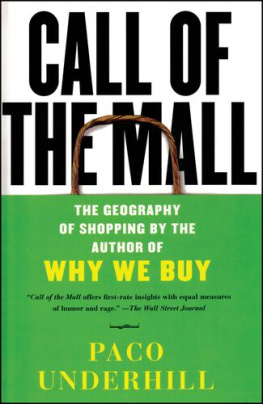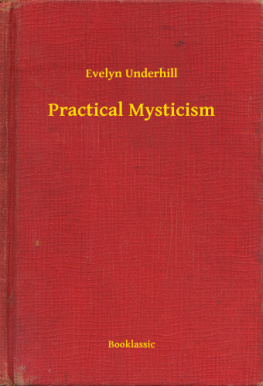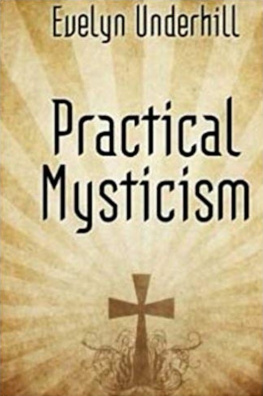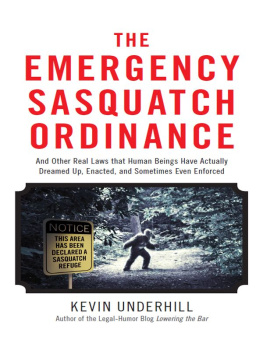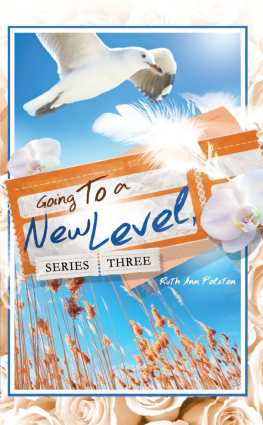THE UNIVERSITY OF CHICAGO PRESS, CHICAGO 60637
THE UNIVERSITY OF CHICAGO PRESS, LTD., LONDON
1965 by The University of Chicago
All rights reserved. Published 1965
Printed in the United States of America
03 02 01 00 12 13 14
Designed by Adrian Wilson
Woodcuts by Dianne Weiss
ISBN: 0226841677 (paperbound)
LCN: 6524985
ISBN: 9780226217680 (ebook)

The paper used in this publication meets the minimum requirements of the American National Standard for Information SciencesPermanence of Paper for Printed Library Materials, ANSI Z39.48-1984.
INDIANS AND THE SUPERNATURAL
The big wooden dance house near Puget Sound had been newly built in the old Indian style. That meant a ceiling so high that men could only just reach the rafters when they drummed on them with their long poles. Spaced on the earthen floor, a hundred feet long, were the four huge fires. No need for a tiny Indian style fire in this country of great forests! The guests around the wall sat on tiers of benches, men on one side, women on the other, while at the back sat the host tribe, wearing blankets over their ordinary clothes. One blanket was an ancient Chilkat, of white dogs wool, with decorations in yellow, turquoise, and black.
The talking ceased when we heard from that rear section a low moaning. A man was swaying forward and back, moaning louder and louder. Suddenly he rose, leaped from his place, and began running down the room, circling the fires.
Enemy come!
Enemy come!
So my companions told me that he was chanting. Companions of his own, who had been sitting behind him, were running with him now, getting between him and the fire so that he should not rush into it and burn himself.
Enemy come!
Enemy come!
They were taking up the song while the men with poles pounded loudly on the rafters.
He has got the war spirit, said my Indian neighbor reverently. Its rare. Powerful!
But there is no war now.
Spirit is powerful for lots of things. His grandfather had it. Oh, this is good! We feared no one would get a spirit this year.
The neighbor who told me this was glowing with enthusiasm. A spark of hope and confidence had been lighted in him and in that whole roomful of modern Indians, puzzled and frustrated by all the new ways that custom had forced upon them. What if there was no war! The coming of a spirit meant that Indian courage and ability were not dead.
A Mohave boy had died. The ten-foot-high funeral pyre had blazed for hours while his clan marched up and down, singing the saga of their early wanderings. Now and then someone had danced slowly toward the pyre to throw in some special gift. Now his comrades from the government school came out in football clothes to play a game in his honor. The game lasted until the fire died down, while girls cheered from the sidelines.
You see, one of his classmates explained to me, his soul played with us. Feel happy before it goes.
Goes where?
But here the boy was vague. He had not been brought up with his eyes on an afterworld, as many Christians are. Maybe under big river [the Colorado]. Maybe come back some day.
He went back to the game.
We had entered the ceremonial tipi at dusk and sat upright on the carpet of white sage while the drum, rattle, and staff passed around the circle. Each man held the staff and shook the rattle while the man beside him drummed faster than I ever heard raindrops rattle on a roof.
I walk the peyote road.
It is a good road.
We had eaten four of the nauseous-tasting buttons. I found them nauseating but an Indian mentor told me later, Peyote doesnt make you sick unless you have pride in your heart. (An impersonal investigating attitude, I think he meant.)
I had tried to eliminate such a white mans attitude, but perhaps some shreds remained, for I got no vision. I had seen the heads of others nodding in time to the drum beats. Most of them did not have a vision, I knew, for that takes more buttons than these Oklahoma Indians could afford. They were happy in the feeling that they were on the Road together, the Peyote Road, revealed especially to Indians. It is a hard road, for those who follow it should take no alcohol. They should work, they should not quarrel. Later, Indians of the five different tribes present would testify as to whether they had been able to keep on the Road.
Now midnight had come. There were no watches in the group, or, at least, none were looked at. The leader, the Road Man, had simply glanced at the stars through the smoke hole. He rose and we filed out behind him into the November night.
I call the winds now, he told me. He lifted a birdbone whistle and blew four times, to the east, south, west, and north.
Now we go in and I pray. For all in the world. Birds, horses, cows, people, Indians, white, Germans, Russia. All.
It should be plain from the episodes cited above that Indian religious beliefs cannot be summed up in the popular white mans formula of a Great Spirit and a Happy Hunting Ground. In former days, there were many small groups, with no autocratic chief, to whom the idea of a ruling deity, a Great Spirit, would be meaningless. They applied for help and comfort to their fellow beings on earth, the animals, the plants, even the rocks. Other groups did speak of a Being in an upper world, but this deity ranged all the way from a Great Holy Flame of Life to the California condor. As for the Happy Hunting Ground, that was obviously a concept only for hunting people and there were many even of them who had never heard of it. Some tribes thought of the afterworld as a shadowy village, where the departed were homesick for their relatives. Fortunate dead of the Alaskan Eskimo could be seen in the aurora borealis playing their version of football. Navaho dead disappeared in the infinite, like drops of river water poured back into the stream.



 The paper used in this publication meets the minimum requirements of the American National Standard for Information SciencesPermanence of Paper for Printed Library Materials, ANSI Z39.48-1984.
The paper used in this publication meets the minimum requirements of the American National Standard for Information SciencesPermanence of Paper for Printed Library Materials, ANSI Z39.48-1984.


